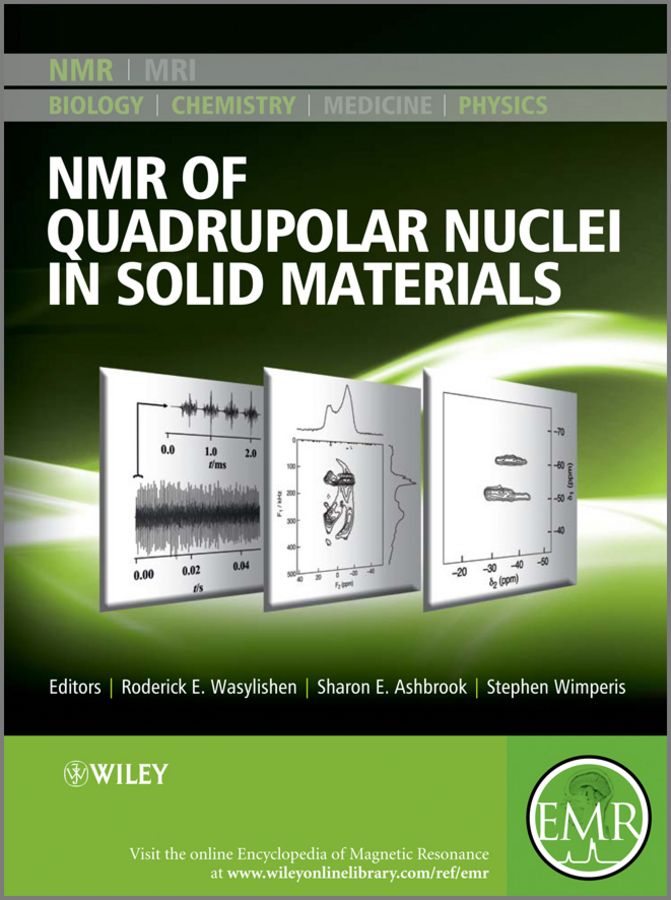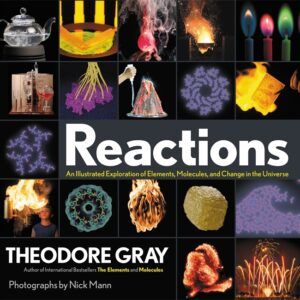<p>The content of this volume has been added to <i><b>eMagRes</b></i> (formerly <i>Encyclopedia of Magnetic Resonance)</i> – the <a href=”http://onlinelibrary.wiley.com/book/10.1002/9780470034590/homepage/rf_coils_virtual_issue.htm?cm=on-chem&cs=chem-analytic&cu=sitename-ln&cd=sitename-In-MRIgroup-VI”>ultimate online resource for NMR and MRI</a>.<br /> <br /> Over the past 20 years technical developments in superconducting magnet technology and instrumentation have increased the potential of NMR spectroscopy so that it is now possible to study a wide range of solid materials. In addition, one can probe the nuclear environments of many other additional atoms that possess the property of spin. In particular, it is possible to carry out NMR experiments on isotopes that have nuclear spin greater that ½ (i.e. quadrupolar nuclei). Since more that two-thirds of all NMR active isotopes are quadrupolar nuclei, applications of NMR spectroscopy with quadrupolar nuclei are increasing rapidly.</p> <p>The purpose of this handbook is to provide under a single cover the fundamental principles, techniques and applications of quadrupolar NMR as it pertains to solid materials. Each chapter has been prepared by an expert who has made significant contributions to out understanding and appreciation of the importance of NMR studies of quadrupolar nuclei in solids. The text is divided into three sections: The first provides the reader with the background necessary to appreciate the challenges in acquiring and interpreting NMR spectra of quadrupolar neclei in solids. The second presents cutting-edge techniques and methodology for employing these techniques to investigate quadrupolar nuclei in solids. The final section explores applications of solid-state NMR studies of solids ranging from investigations of dynamics, characterizations of biological samples, organic and inorganic materials, porous materials, glasses, catalysts, semiconductors and high-temperature superconductors.</p> <p><b>About <i>EMR Handbooks / eMagRes Handbooks</i> </b></p> <p>The <i>Encyclopedia of Magnetic Resonance</i> (up to 2012) and <i>eMagRes</i> (from 2013 onward) publish a wide range of online articles on all aspects of magnetic resonance in physics, chemistry, biology and medicine. The existence of this large number of articles, written by experts in various fields, is enabling the publication of a series of <b><i>EMR Handbooks / eMagRes Handbooks</i> </b>on specific areas of NMR and MRI. The chapters of each of these handbooks will comprise a carefully chosen selection of articles from <i>eMagRes</i>. In consultation with the <i>eMagRes</i> Editorial Board, the <b><i>EMR Handbooks / eMagRes Handbooks</i> </b> are coherently planned in advance by specially-selected Editors, and new articles are written (together with updates of some already existing articles) to give appropriate complete coverage. The handbooks are intended to be of value and interest to research students, postdoctoral fellows and other researchers learning about the scientific area in question and undertaking relevant experiments, whether in academia or industry.</p> <p>Have the content of this Handbook and the complete content of <b><i>eMagRes</i></b> at your fingertips!<br /> Visit: <a href=”http://www.wileyonlinelibrary.com/ref/eMagRes”>www.wileyonlinelibrary.com/ref/eMagRes</a><br /> <br /> View other eMagRes publications <a href=”http://onlinelibrary.wiley.com/book/10.1002/9780470034590/homepage/emagres_publications.htm” target=”_blank”>here</a></p>
NMR of Quadrupolar Nuclei in Solid Materials
₹15,211.00
This book is currently not in stock. You are pre-ordering this book.




